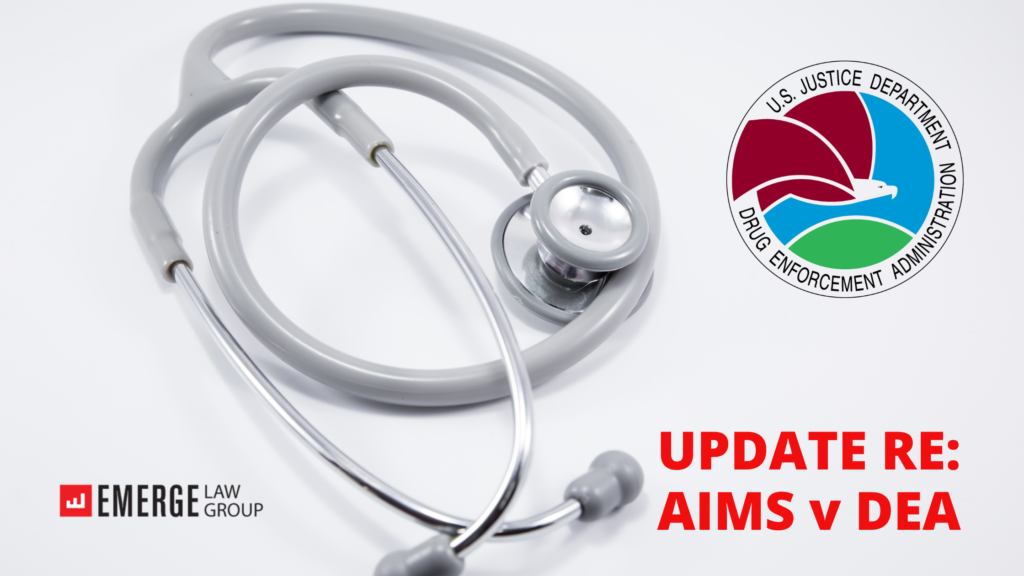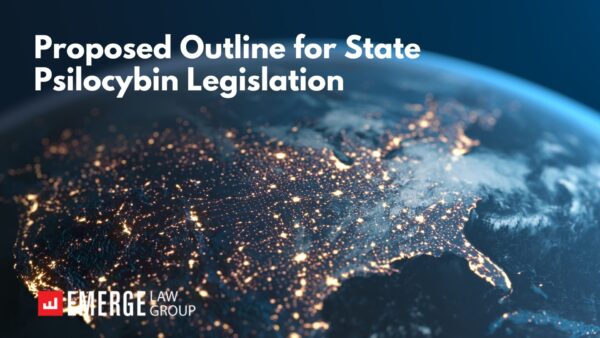By Kathryn Tucker, JD[1]
In January 2021, Dr. Sunil Aggarwal, a respected palliative care physician and founder of the Advanced Integrative Medical Science (“AIMS”) Institute in Seattle, sought authorization from the DEA to obtain psilocybin for therapeutic use with his dying cancer patients. Psilocybin is an investigational drug shown to be remarkably effective in relieving debilitating anxiety and depression suffered by terminally ill patients. The Washington and federal Right to Try (“RTT”) Acts provide for dying patients to have access to investigational drugs that have completed Phase I clinical trials and remain under investigation, recognizing that these patients do not have the time to await the slow process of new drug approval.
Because psilocybin is a Schedule I controlled substance, no supplier would provide psilocybin to Dr. Aggarwal without DEA’s approval. In February 2021, DEA rejected Dr. Aggarwal’s request for access. This decision contravened RTT laws; accordingly, Dr. Aggarwal sought judicial review of DEA’s determination in the United States Court of Appeals for the Ninth Circuit. Extensive briefing, including amicus participation by a multitude of parties ranging from Cato Institute and ACLU, and a bipartisan group of States, was submitted. Oral argument was heard in September 2021. The court dismissed the petition on January 31, 2022, concluding that DEA’s rejection of Dr. Aggarwal’s request was not sufficiently “final” for purposes of judicial review, hence the court lacked jurisdiction to reach the merits.[2]
Following the ruling Dr. Aggarwal immediately requested that DEA provide a “final decision” on this urgent matter, so that he could either be granted access and provide care to his patients with this investigational drug or return to court. By letter issued on June 28, 2022, the DEA, again, rejected access:
“This latest request effectively restates the grounds that you previously submitted to DEA…. Accordingly, DEA considers your latest correspondence as a request for reconsideration of the agency’s letter to you dated February 12, 2021. DEA finds no basis for reconsideration of its February 12, 2021, letter because the legal and factual considerations remain unchanged.”
This June 28 letter seems to fly in the face of the agency’s argument in the litigation that it had not issued a final decision. It appears to be the agency doubling down on a decision that no access pursuant to RTT would be granted. In an abundance of respect to the administrative process, Dr. Aggarwal has asked the DEA to confirm that its June 28 letter is indeed ‘final agency action’ so that there can be no doubt about this when we return to court.
If we must return to court we will ask that the same three judge panel hear the case, as the issues were fully briefed and argued to that panel in 2021. We will seek expedited review, because of the urgency presented by the inexorable progression of terminal illness faced by Dr. Aggarwal’s patients.
[1] Special Counsel at Emerge Law Group, Co-Chair Psychedelic Practice Group. Founding board member of the Psychedelic Bar Association, Co-Chair, Litigation and Advocacy Committee. Liaison to the American Bar Association. Founding Advisory Board Member, the Initiative on Psychedelics and Healing, Global Wellness Institute.
[2] See RCW 69.77 et seq. (Washington RTT); Trickett Wendler, Frank Mongiello, Jordan McLinn, and Matthew Bellina Right to Try Act of 2017, Pub. L. No. 115-176, § 1, 132 Stat. 1372, codified at 21 U.S.C. § 360bbb-0a (Federal RTT).
[3] AIMS v. Garland, 21-70544.




